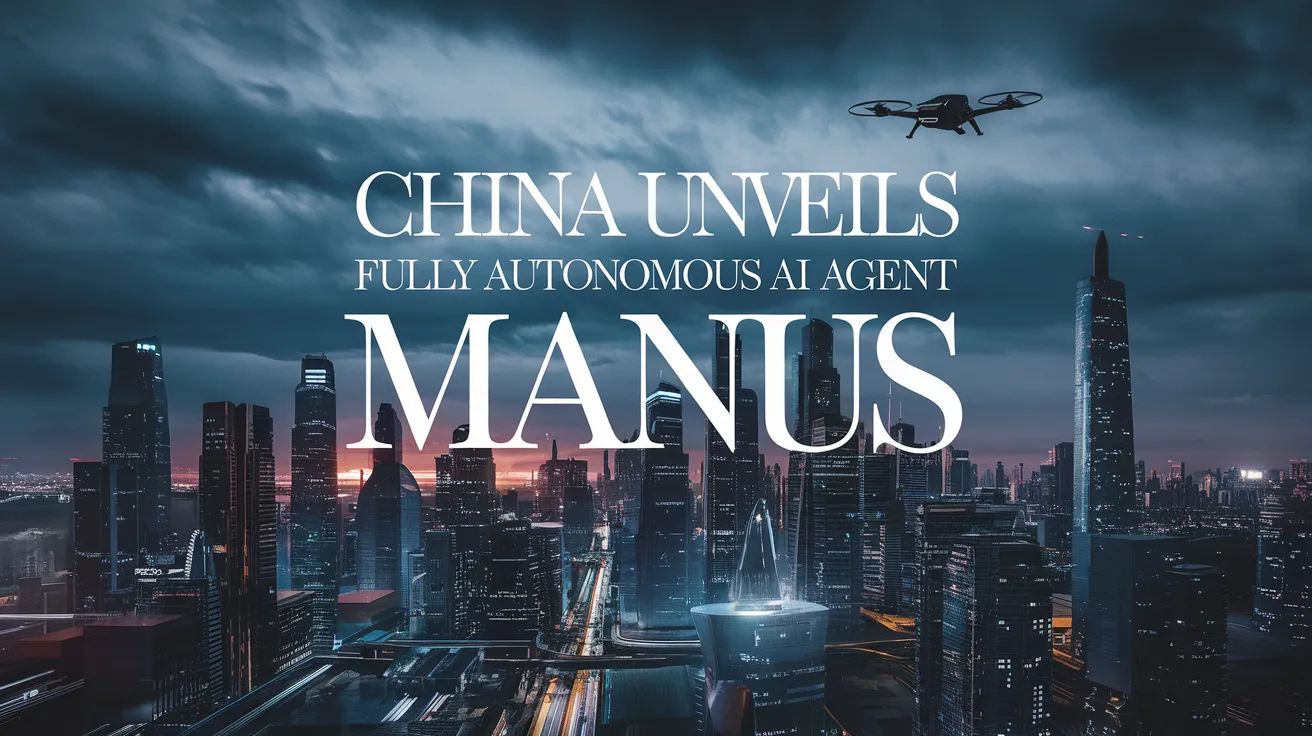China Unveils Fully Autonomous AI Agent Manus

A group of software engineers in China has made headlines with the unveiling of what they are calling the “world’s first” fully autonomous artificial intelligence (AI) agent, known as “Manus.” This revolutionary AI agent possesses the capability to independently perform complex tasks without requiring human intervention.
Unlike conventional AI chatbots such as ChatGPT, Google’s Gemini, or Grok, which operate based on user prompts, Manus is designed to proactively make decisions and complete tasks autonomously. For instance, if a human requests assistance in finding an apartment, Manus can actively conduct research, evaluate various factors—including crime rates, weather conditions, and market trends—and offer personalized recommendations.
Manus takes innovation a step further by functioning not as a single AI model but as an executive that manages a series of specialized sub-agents. This architecture empowers the system to smoothly address complex, multi-step workflows, greatly enhancing its efficiency.
Additionally, Manus operates asynchronously, which means it can complete tasks in the background and notify users only once the results are ready, freeing users from the need for constant supervision. This represents a pivotal shift in the AI landscape, where the majority of existing AI systems still heavily depend on human input to initiate tasks.
With the introduction of Manus, the conversation around autonomous AI now includes potential challenges and opportunities. The emergence of this AI agent arrives just over a year after the launch of DeepSeek—an AI that was considered by many to signal China’s AI “Sputnik Moment,” indicating substantial strides in advanced artificial intelligence.
Some experts argue that Manus challenges the perception of the United States as the undisputed leader in AI advancement, indicating that China may have progressed significantly, possibly even surpassing its U.S. counterpart by developing truly autonomous AI capabilities.
The real-world applications of Manus could be far-reaching, extending to essential functions such as recruitment. In this capacity, the AI agent could autonomously analyze resumes, correlate them with job market trends, and produce optimal hiring recommendations, enriched with detailed analyses and reports.
In the realm of software development, Manus could rapidly create professional websites from scratch, gather necessary data from social media, deploy the sites, and independently address technical hosting challenges.
However, this technological advancement does not come without concerns. Manus poses a tangible threat to human employment, being capable of replacing human workers rather than merely enhancing their efficiency. This reality raises significant ethical and regulatory dilemmas regarding its deployment.
Moreover, there are profound questions about liability: who should be held accountable if an AI makes a costly error autonomously? Current regulatory frameworks are not equipped to manage fully independent AI agents, prompting a reevaluation of existing laws and guidelines.
Silicon Valley tech leaders have historically anticipated maintaining supremacy in AI through gradual enhancements. However, Manus disrupts this trajectory, igniting fears that China might secure a competitive edge in AI-driven industries.
The global response to this groundbreaking development remains to be seen, but it signals a potential shift toward a new age of autonomous AI agents.